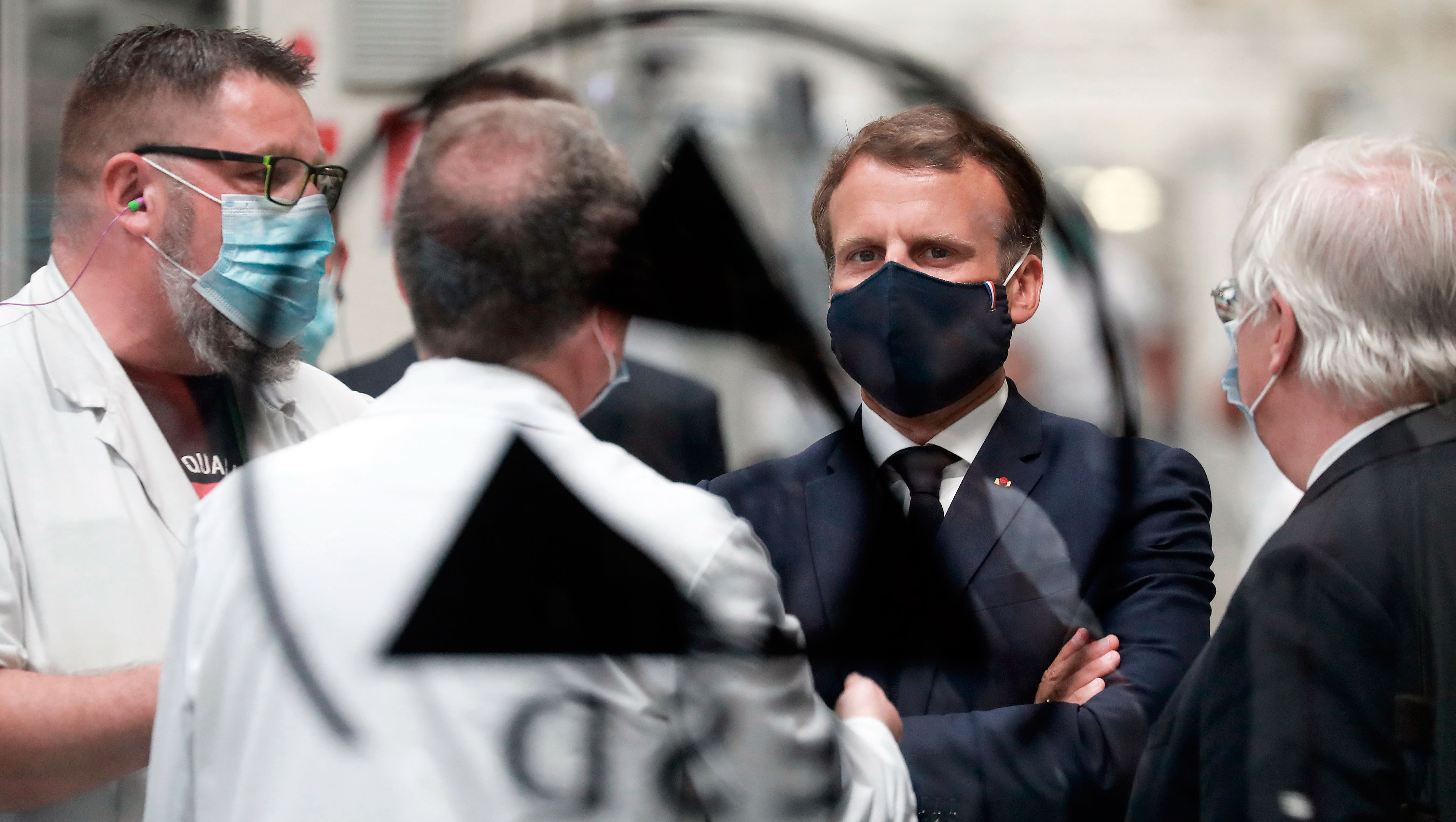The country that burned masks: inside France’s coronavirus response
President Macron is paying a high political price for failing to contain the pandemic

A free daily email with the biggest news stories of the day – and the best features from TheWeek.com
You are now subscribed
Your newsletter sign-up was successful
When Boris Johnson was riding high in the polls back in April and even Donald Trump was a little more popular than usual, Emmanuel Macron’s approval rating hit rock bottom.
Two-thirds of French voters said their president was doing a bad job - a damning result that Politico attributes to a combination of “French exceptionalism” and the failure of the state to meet high expectations.
“The French are seldom satisfied with anything that their leaders do,” says the news site. “And given the volatility of the coronavirus crisis, there has been plenty to criticise.”
The Week
Escape your echo chamber. Get the facts behind the news, plus analysis from multiple perspectives.

Sign up for The Week's Free Newsletters
From our morning news briefing to a weekly Good News Newsletter, get the best of The Week delivered directly to your inbox.
From our morning news briefing to a weekly Good News Newsletter, get the best of The Week delivered directly to your inbox.
Macron himself admitted as much. “This moment, let’s be honest, has revealed cracks, shortages,” he said in a TV address on 13 April. “Like every country in the world, we have lacked gloves, hand gel, we haven’t been able to give out as many masks as we wanted to our health professionals.”
The mask shortage proved especially politically damaging after it emerged that the government had deliberately reduced its stockpile.
–––––––––––––––––––––––––––––––For a round-up of the most important stories from around the world - and a concise, refreshing and balanced take on the week’s news agenda - try The Week magazine. Start your trial subscription today –––––––––––––––––––––––––––––––
“As coronavirus arrived in France this winter, staff at an army base in the east of the country were dutifully burning hundreds of thousands of facemasks,” The Times reports. “The incinerations were part of a money-saving programme to run down the state’s stock of 1.7 billion protective masks that had reached a peak in 2011.”
A free daily email with the biggest news stories of the day – and the best features from TheWeek.com
After false alarms with Sars and swine flu, ministers had decided they would no longer hold protective equipment in reserve. So when the coronavirus pandemic began, they were forced to try to buy masks on the open market, but could secure only 14 million per week when 40 million were needed.
“France has also been lamentably sluggish in building up its testing capacities,” says Politico. According to online statistics portal Statista, France has carried out less than half as many Covid-19 tests as the UK.
Macron also seemed reluctant to impose a strict lockdown. He “allowed gatherings of up to 1,000 people” well into March, says Vox, and did little to modify his own behaviour. On 6 March, the president “visited a retirement home” and then went to the theatre, “to show that life could continue unperturbed”.
Many of the criticisms surrounding his government may sound familiar in the UK, where testing has fallen short of targets, government advice has been inconsistent, and protective equipment often in short supply. For the French, however, that’s not the point.
“Judged by British standards, France’s handling of the coronavirus crisis has not been too disastrous, with 145,555 infections and 28,530 deaths,” says The Times. “But France does not judge itself by British standards.”
-
 What is the endgame in the DHS shutdown?
What is the endgame in the DHS shutdown?Today’s Big Question Democrats want to rein in ICE’s immigration crackdown
-
 ‘Poor time management isn’t just an inconvenience’
‘Poor time management isn’t just an inconvenience’Instant Opinion Opinion, comment and editorials of the day
-
 Bad Bunny’s Super Bowl: A win for unity
Bad Bunny’s Super Bowl: A win for unityFeature The global superstar's halftime show was a celebration for everyone to enjoy
-
 Greenland’s capital becomes ground zero for the country’s diplomatic straits
Greenland’s capital becomes ground zero for the country’s diplomatic straitsIN THE SPOTLIGHT A flurry of new consular activity in Nuuk shows how important Greenland has become to Europeans’ anxiety about American imperialism
-
 Epstein files topple law CEO, roil UK government
Epstein files topple law CEO, roil UK governmentSpeed Read Peter Mandelson, Britain’s former ambassador to the US, is caught up in the scandal
-
 Iran and US prepare to meet after skirmishes
Iran and US prepare to meet after skirmishesSpeed Read The incident comes amid heightened tensions in the Middle East
-
 Israel retrieves final hostage’s body from Gaza
Israel retrieves final hostage’s body from GazaSpeed Read The 24-year-old police officer was killed during the initial Hamas attack
-
 China’s Xi targets top general in growing purge
China’s Xi targets top general in growing purgeSpeed Read Zhang Youxia is being investigated over ‘grave violations’ of the law
-
 Panama and Canada are negotiating over a crucial copper mine
Panama and Canada are negotiating over a crucial copper mineIn the Spotlight Panama is set to make a final decision on the mine this summer
-
 Why Greenland’s natural resources are nearly impossible to mine
Why Greenland’s natural resources are nearly impossible to mineThe Explainer The country’s natural landscape makes the task extremely difficult
-
 Iran cuts internet as protests escalate
Iran cuts internet as protests escalateSpeed Reada Government buildings across the country have been set on fire